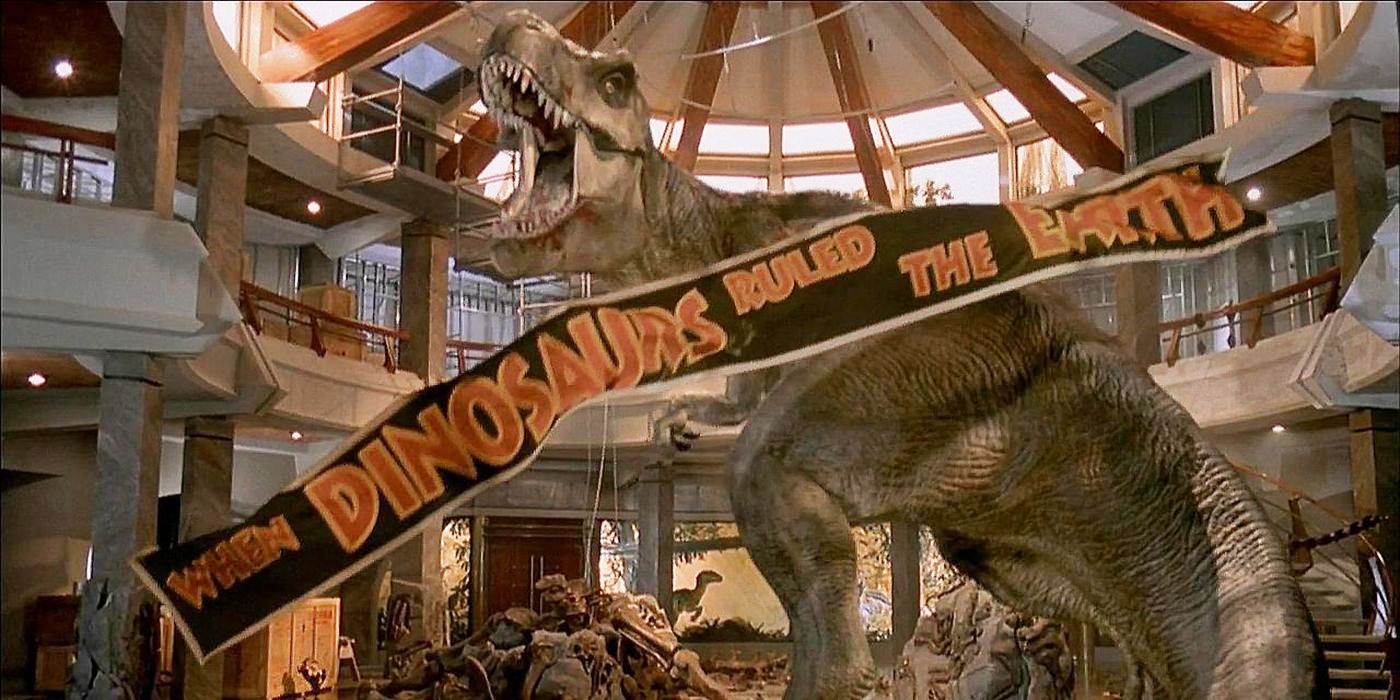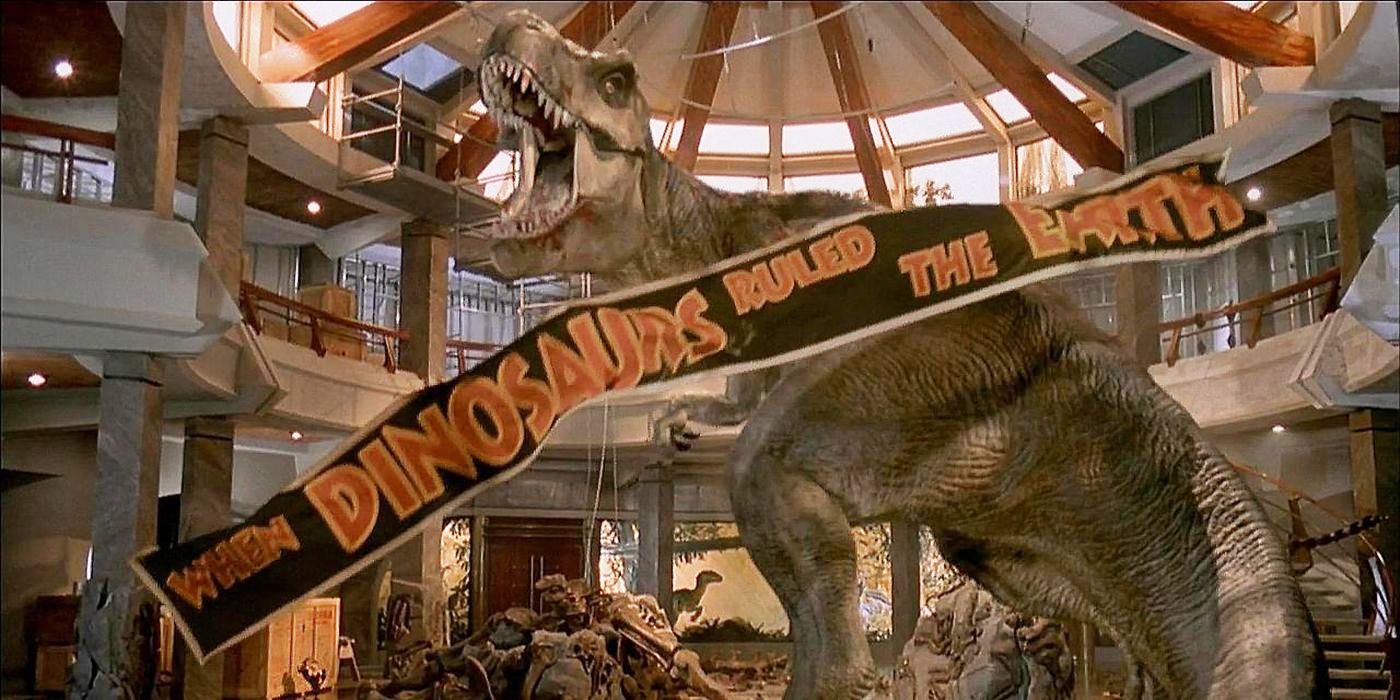
Image via Universal Pictures

It’s perhaps inaccurate to label a director like Martin Scorsese as a “crime movie filmmaker,” since he’s done a lot, but you wouldn’t blame everyone who makes that generalization, because he’s best known for crime movies. The same can potentially be said of John Ford and Westerns, and Dario Argento and horror movies. But when it comes to Steven Spielberg, it is genuinely difficult – even with generalizing permitted – to pin him down to a single genre. The famously versatile Stanley Kubrick is probably easier to pin down, given how many war movies he made. But Spielberg has done classic action films (Raiders of the Lost Ark), monumental historical dramas (Schindler’s List), acclaimed war movies (Saving Private Ryan), and even a pretty great musical (2021’s West Side Story). As part of his seeming attempts to direct as many types of movies as possible, he’s also done his fair share of science fiction. What follows is a rundown of some of the best sci-fi movies Spielberg has directed; the ones that are close to masterful, or just outright masterpieces in ways that are hard to dispute. The versatility does continue, to some extent, thanks to these movies not being all strictly sci-fi. One is also something of an action movie, another is a family/coming-of-age movie, and one further is a sci-fi film and an iconic monster movie (of sorts) at the same time. These movies are just all extremely well put together, showcasing Spielberg at the top of his game in four different decades, funnily enough. That wasn’t intentional, to pick one per decade, but he has a single iconic sci-fi movie from the 1970s, ‘80s, ‘90s, and 2000s (the 2010s gave us Ready Player One… which is maybe over-hated, though it’s definitely not close to masterful). Anyway, ranking great movies is hard, but that’s what has been attempted below, starting with the extremely good and ending with the absolutely immense.
4
‘Minority Report’ (2002)
Starring: Tom Cruise, Samantha Morton, Colin Farrell
Image via 20th Century Studios
A little before he became particularly well known for running and saving the world as Ethan Hunt, Tom Cruise partnered with Steven Spielberg for a pair of sci-fi movies (okay, admittedly, there had been two Mission: Impossible movies before 2002, but later films saw stakes being raised and the amount of on-screen running increasing). Of those two Cruise + Spielberg movies, War of the Worlds is good, and worthy of an honorable mention for how intense it gets as an update of a very old story, but Minority Report – an update of a not-quite-as-old story, Philip K. Dick’s The Minority Report (1956) – is the stronger movie overall. It has an undeniably fascinating premise that’s well-explored, given it takes place in a future where crime can be predicted before it happens, leading to arrests that occur, ideally, before anything violent can take place. Or is it ideal? If a crime doesn’t happen, should it still be punished? That’s the dilemma at the heart of Minority Report, which, though tonally different, is going for a similarly challenging exploration of futuristic justice as A Clockwork Orange from about three decades earlier. Things are established, and then stuff goes wrong, with Cruise playing an increasingly desperate man who finds himself dealing with being accused of something he didn’t do. It’s all mind-bending, stylishly presented, and very compelling. It’s a testament to Spielberg’s filmography that there are quite a few movies he directed that are even better than Minority Report, but as far as his sci-fi films of the 21st century go, this is the one that’s probably closest to flawless. Actually, can there be another honorable mention? Yes. There can. And it’s 2001’s A.I. Artificial Intelligence, which is a bit messy and unevenly paced, but underrated overall, and home to some truly devastating sequences.
3
‘Close Encounters of the Third Kind’ (1977)
Starring: Richard Dreyfuss, François Truffaut, Teri Garr
Image via Columbia Pictures
As a 1977 release, Close Encounters of the Third Kind is a pretty early movie in Spielberg’s body of work, coming out when the director himself was only 30. To think he made the likes of Duel, The Sugarland Express (another underrated one), and (especially) Jaws when he was still in his 20s is wild. Anyway, Close Encounters of the Third Kind is one of the ultimate movies about UFOs, which is a subject Steven Spielberg is reportedly revisiting now, almost 50 years later. They’re approached in Close Encounters of the Third Kind in a way that’s sometimes eerie, but never outright horrific. And this film isn’t exactly action-packed, either, but doesn’t have to be. It’s not about alien invaders or conflict between humans and extra-terrestrials, as instead, it’s about the existence of aliens being something that causes family drama.
Succeeding as both an exploration of obsession and as big-screen spectacle, Close Encounters of the Third Kind pulls off an impressive balancing act.
That might make Close Encounters of the Third Kind sound boring, to call it more of a drama, but that is the core of the film. It’s about a father becoming obsessed with seeing a UFO again after one encounter, and the strain this puts on his family. Succeeding as both an exploration of obsession and as big-screen spectacle, Close Encounters of the Third Kind pulls off an impressive balancing act, and proves absorbing to watch. It’s a movie you kind of sink into, and it all builds to a finale that is understandably iconic. It’s classic science fiction while also doing things to differentiate itself from other movies that might get labeled as classic sci-fi. Also, for icing on the cake, it has a surprisingly great performance from François Truffaut, who’s otherwise best known as a director (including of The 400 Blows), while Richard Dreyfuss in the lead role gives what’s probably the best performance of his career, too.
2
‘Jurassic Park’ (1993)
Starring: Sam Neill, Laura Dern, Jeff Goldblum
Image via Universal Pictures
If Jurassic Park counts as a monster movie, then it’s perhaps the greatest of all time, or at least up there with the likes of the original King Kong and Godzilla movies (released in 1933 and 1954, respectively). It’s also such an iconic movie that it probably doesn’t need much of an introduction, but in the interest of formality and giving it one, it’s about dinosaurs being brought back to life, effectively, to be the main attraction at a theme park that’s about to open. Of course, things don’t go to plan, and the people there before the park officially opens are put in danger due to a combination of negligence and Newman from Seinfeld (*grits teeth* “…Newman!”). When all hell breaks loose, Jurassic Park is obviously exciting and spectacular, with the special effects still largely holding up, and likely looking completely out of this world for anyone lucky enough to see it back in 1993.
Image via Universal Pictures
But the stuff before all the action in Jurassic Park is also excellent. The characters are engaging, the ideas brought up – while broad – are interesting, the dialogue is memorable, and the music by John Williams is sublime. The movie gives you a reason to care about the more in-your-face stuff, and so when it rolls around for all that to happen, it’s so much more intense. The imperfect approach can be seen in many of the sequels to Jurassic Park. They might deliver on a dinosaur front, and have fun sequences, but nothing comes close to the original on a character/dialogue front. It’s a movie that feels perfectly written, perfectly cast, perfectly directed, and perfectly scored. Everything in Jurassic Park works in – you guessed it – perfect harmony, and its status as a classic is more than well-deserved. So, with all that said, how can another Spielberg movie take the top spot ahead of it?
Starring: Henry Thomas, Drew Barrymore, Robert MacNaughton
Well, another Spielberg movie can take the top spot because the Spielberg movie in question is E.T. the Extra-Terrestrial. It feels just as perfect as Jurassic Park, but perhaps excels even more because of the emotional punch it packs. It’s tremendously moving, both when you’re young and when you watch the film as an adult. It’s obviously easy to get wrapped up in the inherently exciting story if you’re in the former camp, but if you’re in the latter, then it’s the nostalgic feel of E.T. the Extra-Terrestrial that hits the hardest. You might not have grown up in the 1980s, but the nostalgia goes deeper, because this film, more than just about any other, recreates how it feels to be young, a little lost, and persistently curious. It’s definable as a coming-of-age movie in that regard, but then, of course, it’s also science fiction, because there’s an alien at the center of it all.
The core of the film is the bond between E.T. and Elliot, with the audience ideally warming up to the initially freaky E.T. at about the same time that Elliot does. They become friends, but also, Elliot wants to help E.T. reconnect with his own kind, given he was accidentally left on Earth in like a reverse Home Alone sort of situation. It’s fun, moving, exciting, sad, bittersweet, impactful… all those positive adjectives and more, especially when it comes to the way the film ultimately wraps up. You could call E.T. the Extra-Terrestrial Spielberg’s most sentimental film, and you’d probably be right, but it’s not sentimental in a bad or forced way. It earns the right to deliver all the emotional punches it wants to, and those punches all land surprisingly hard. It’s just a classic movie, in every sense of the term, and probably Spielberg’s single greatest science fiction film.
NEXT: The Greatest Comedy Movies of the Last 50 Years, Ranked








